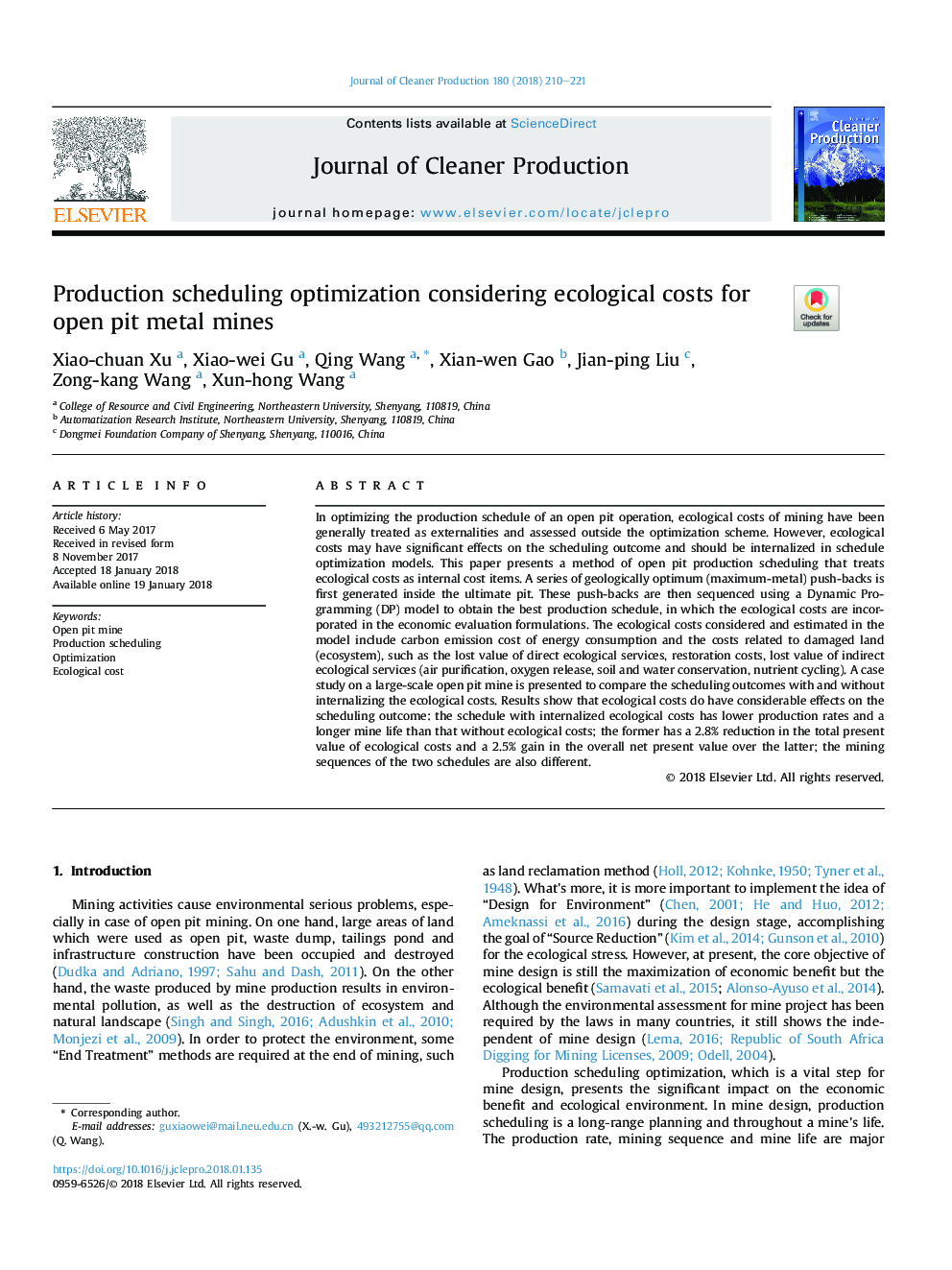| Article ID | Journal | Published Year | Pages | File Type |
|---|---|---|---|---|
| 8097882 | Journal of Cleaner Production | 2018 | 12 Pages |
Abstract
In optimizing the production schedule of an open pit operation, ecological costs of mining have been generally treated as externalities and assessed outside the optimization scheme. However, ecological costs may have significant effects on the scheduling outcome and should be internalized in schedule optimization models. This paper presents a method of open pit production scheduling that treats ecological costs as internal cost items. A series of geologically optimum (maximum-metal) push-backs is first generated inside the ultimate pit. These push-backs are then sequenced using a Dynamic Programming (DP) model to obtain the best production schedule, in which the ecological costs are incorporated in the economic evaluation formulations. The ecological costs considered and estimated in the model include carbon emission cost of energy consumption and the costs related to damaged land (ecosystem), such as the lost value of direct ecological services, restoration costs, lost value of indirect ecological services (air purification, oxygen release, soil and water conservation, nutrient cycling). A case study on a large-scale open pit mine is presented to compare the scheduling outcomes with and without internalizing the ecological costs. Results show that ecological costs do have considerable effects on the scheduling outcome: the schedule with internalized ecological costs has lower production rates and a longer mine life than that without ecological costs; the former has a 2.8% reduction in the total present value of ecological costs and a 2.5% gain in the overall net present value over the latter; the mining sequences of the two schedules are also different.
Related Topics
Physical Sciences and Engineering
Energy
Renewable Energy, Sustainability and the Environment
Authors
Xiao-chuan Xu, Xiao-wei Gu, Qing Wang, Xian-wen Gao, Jian-ping Liu, Zong-kang Wang, Xun-hong Wang,
